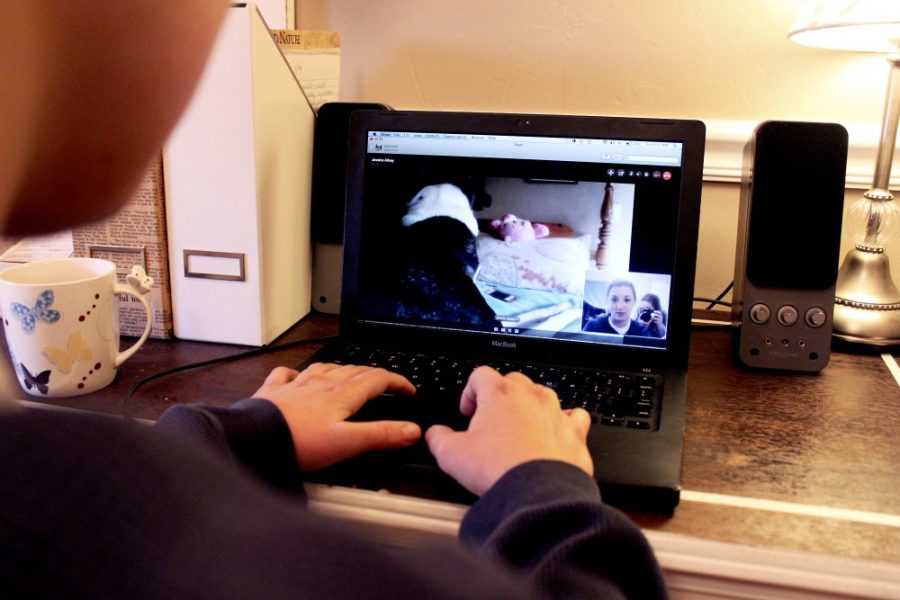Through the use of technology, students no longer need to go off-campus for an interview.
A video call with a potential employer will allow students to make their first impression on camera through the Skype room in Career Services, which allows students to speak with potential employers in a location with a secure Internet connection. Students simply have to drop by and ask for room availability.
“A video interview is a good way for employers to filter out candidates,” said Jeff Patten, a Career Services counselor. “Specifically if they’ve got a lot of candidates to narrow down their pool to know, ‘Yes, these are actually people we’re going to bring on board to do an interview with us in person.’”
Career Services employees are looking to promote this service because not a lot of students take advantage of or know about it, said Bill Ruggirello, assistant director of Career Services. Over the past year, there have only been about eight video interviews conducted in the room, he said.
“I like it (the room) because it helps us bridge that gap with employers in different industries, because maybe they can’t come all the way from say, New York City,” Ruggirello said. “This way, the U of A student still has an opportunity to make that connection.”
Even though Skype interviews don’t necessarily require the student to leave home or meet a potential employer face-to-face, it is still important for the student to take the interview seriously, Ruggirello said. Students should be well prepared and dress the role like they would for any in-person interview, he said.
“It should not be discounted because of the technology. You prepare the same way. Even if you’re doing a phone interview, you should sound like a serious and interested candidate. Don’t discount technology, video interviews are very useful,” he added.
Ways to prepare for this type of interview is through mock interviews with Career Services, or InterviewStream on the Career Services website, Patten said. InterviewStream allows students to prepare for an interview through practice questions geared toward specific majors and careers, he added.
Some students, however, are unsure of the benefits of a video interview.
“I think it would be weird to do a video interview,” said Erica Squires, a sophomore studying English, who said she has never done one before. “It kind of takes away the whole point of going and making your first impression. You could just be wearing your pajamas.”
Other students said video interviewing would not allow them to really stand out against other candidates or truly connect with the employer.
“A video interview would be strange because you’re talking to a computer screen and not an actual person,” said James Devore, an ecology sophomore. Devore said he would take a video interview less seriously because it feels less personal.
However, because the use of video interviews may increase, Ruggirello and Patten said it is important to prepare and feel comfortable with the idea.
“One of the big advantages of doing a video interview is that you can be in an environment you’re comfortable with and that alone can make you a little more successful in the process,” Patten said.









